
Having trouble inserting new videos into AE software? Don’t worry, PHP editor Zimo brings you a step-by-step tutorial to explain in detail how to seamlessly insert new videos in AE. With this tutorial, you'll learn how to add, align, and adjust new videos to make your video projects even better. Come learn and improve your AE skills!
1. First create a new synthesis. Then drag the video material from the folder into the AE time panel.
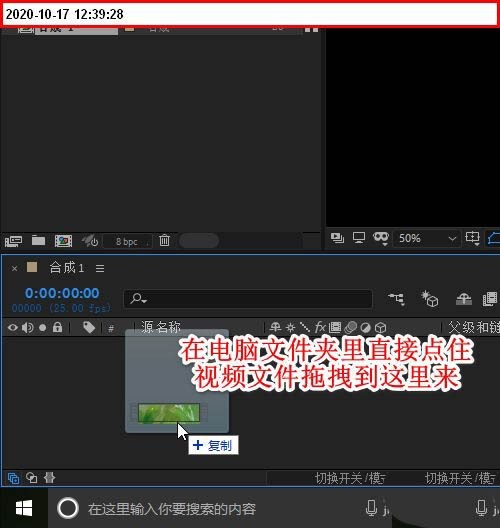
2. A video layer is generated in the time panel, and its working area is also displayed in the timeline.
3. Move the time pointer to the position where the new video needs to be inserted. As shown below.
4. Insert a new video at the time pointer position. The operation method is not as fast as the PR method. The operation method here in AE is a bit clumsy.
5. First, we need to split the layer into two layers with the time pointer as the boundary. The operation is as follows:
6. Click on the [Edit] main menu, and then click [Split Layer] in the pop-up submenu.
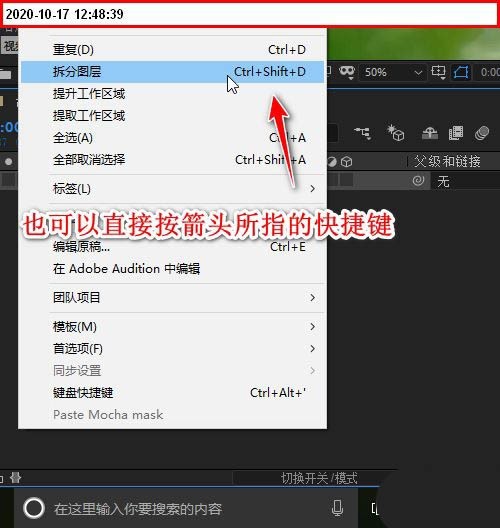
7. As you can see, there are now two layers, divided by the time pointer; then, next, you can paste the two layers Insert a new video at the appropriate location.
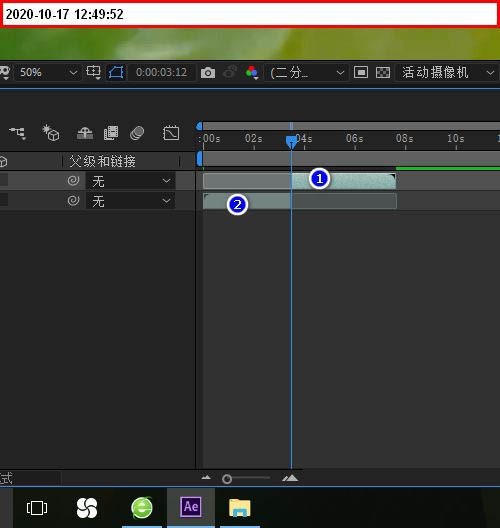
8. Click and hold the mouse on the video above, and move a small distance to the right to leave a gap between the two videos. The size of this gap is the same as the new video.
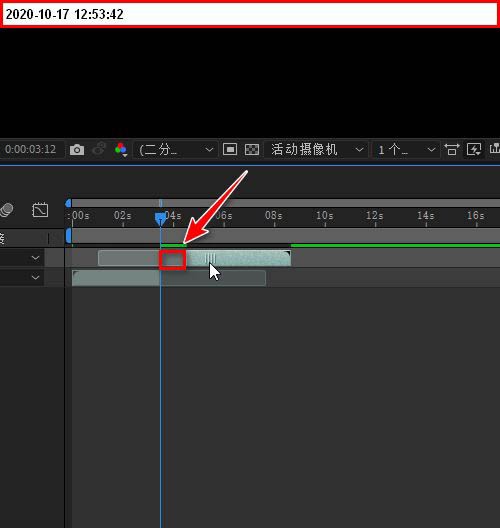
9. Drag the new video from the computer folder into the software and place it in the layers panel on the top layer of all layers.
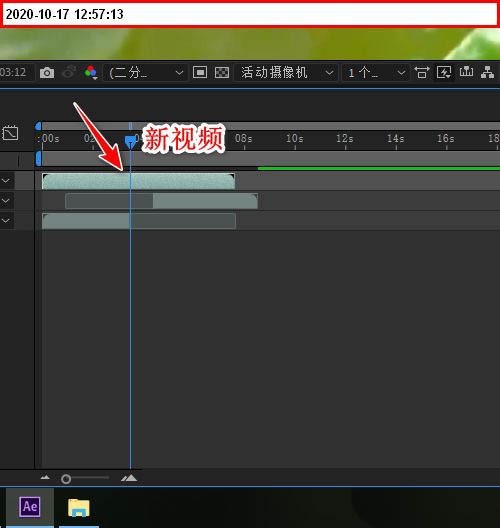
10. As shown in the picture below, press the SHIFT key to reduce the new video to the same size as the gap between the two videos below.
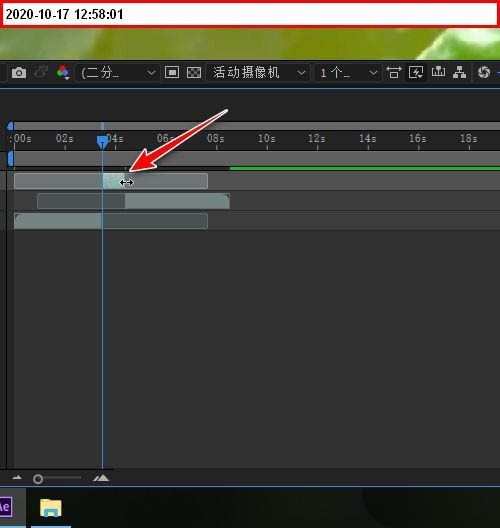
11. Next, we select all three video layers at the same time.
12. Then click on the layer menu and click [Pre-synthesis] in its sub-menu to perform the pre-synthesis operation.
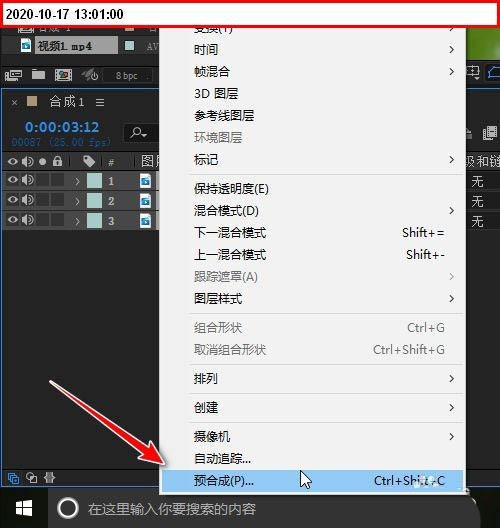
13. Click OK in the pop-up dialog box.
14. Then, generate a new pre-composed layer. As shown below.
15. Then, export the rendered video.
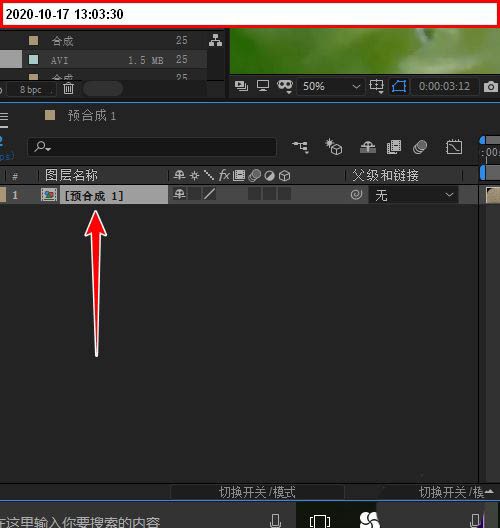
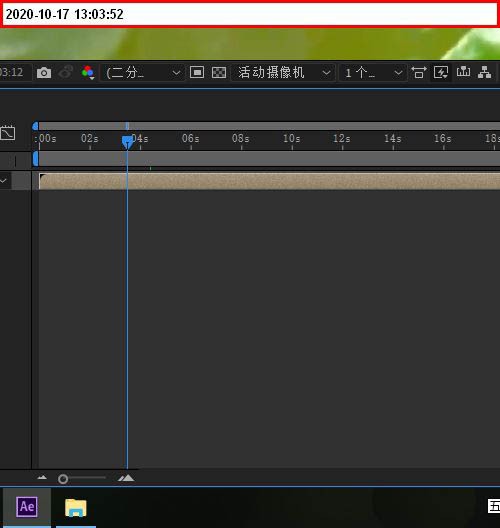
The above is the detailed content of How to insert new video in ae_AE video set video tutorial. For more information, please follow other related articles on the PHP Chinese website!




